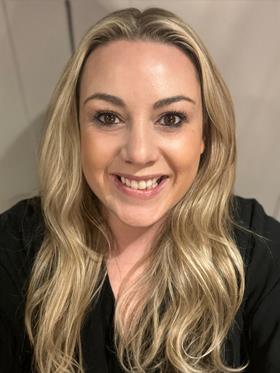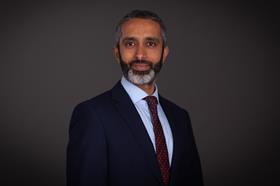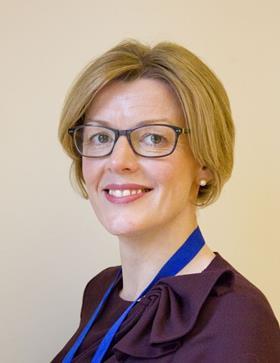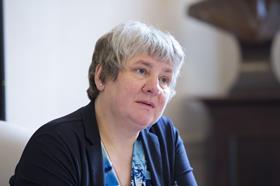In association with
An on-demand version of this webinar is available.

The arrival of highly effective new drugs to help patients with obesity lose weight has led to enormous media interest and many patients seeking help.
But they may be disappointed: while NICE estimates that nearly 10 per cent of the adult population – 4.2 million people – are eligible for these treatments, as few as 50,000 a year are likely to have access, predominately through specialist weight management clinics. And while GPs may eventually be able to prescribe such treatments, they may not have the capacity or training to support, monitor, and reassess patients throughout a two-year course of treatment.
This presents the NHS with a challenge. In the long run, wider use of these drugs could offer the NHS the hope of reducing the costs of complications of obesity and its associated co-morbidities – estimated to cost the country close to £100bn a year. But to deliver on this, the NHS needs to ensure more patients can access appropriate treatment at a time when it is already under pressure and dealing with multiple demands.
This HSJ webinar, in association with Oviva, asked:
- How can the NHS tackle the variation in access to specialist weight management services and ensure equitable access to these highly effective new drugs?
- How can commissioners in integrated care boards build a case for greater investment in weight management services – especially as many of the benefits will be delivered over the long term?
- What are the challenges for existing NHS weight management services in coping with the increasing numbers of obese patients, many of whom will want weight management drugs?
- Are there innovative ways of ensuring patients can have access to these drugs without overwhelming NHS secondary care providers or GPs?
- How are these new treatments affecting patient demand and expectations in primary care? How are GPs able to respond to this?
To access the recording, visit here and click play.
If you had previously registered as a viewer for the event, you will be able to view the recording immediately.
If you have not previously registered, you can do so here to get access to the recording.
Panellists

Sarah Le Brocq, founder and director, All About Obesity
Sarah Le Brocq is the founder and director of All About Obesity, a not-for-profit obesity organisation that launched in 2022. It strives to be the leading obesity organisation for advancing obesity research, supporting, and driving public education, a trusted resource for people living with obesity, healthcare professionals and policymakers, and a support platform for people living with obesity.
Sarah has a unique skill set for living with obesity, a background in science, 16 years experience of working in the pharmaceutical industry, alongside the NHS, and six years’ experience of being in the charity sector.
She sits on the strategic council for the All-Party Parliamentary Group on Obesity, a stakeholder in NHSE’s new national obesity audit, a lay member on the NICE weight management committee, the digital weight management technologies for specialist weight management services, and a representative on the OHA Healthy Weight Strategy lived experience group.
She has also co-authored a number of published academic papers in scientific journals.
![Ellen Fallows Photo[112454]](https://d3e6tmgg461bic.cloudfront.net/Pictures/280xAny/3/3/6/3064336_ellenfallowsphoto112454_678548.jpg)
Ellen Fallows, NHS GP and vice president of British Society of Lifestyle Medicine
Dr Fallows is an NHS GP with experience in treatment and reversal of long-term conditions through supported lifestyle change. She has a post-graduate diploma in obesity and weight management, is board certified in lifestyle medicine and has a certificate in human nutrition. She works with the NHS “Paths to Remission” type 2 diabetes programme and runs group clinics to support patients with lifestyle changes.
She is vice president of the British Society of Lifestyle Medicine, has worked with NHS England, the Royal College of General Practitioners and the Department of Health and Social Care on issues around person-centred care and weight management. She teaches lifestyle medicine at Oxford University and lectures at several medical schools, GP training and trainer events.

Dr Neel Gupta, medical lead, Oviva
Dr Neel Gupta is medical lead at Oviva. He is an experienced clinician and respected health system leader. He has worked as a GP in London for 14 years. He was previously the chair of NHS Camden CCG in North London for three years and later a board member of NHS North Central London CCG. He has spent many years focused on improving outcomes for patients living with long term conditions by designing and delivering innovative models of care.
More recently, his passion for prevention, behaviour change support and the use of digital technology has led him to Oviva.

Catherine Thompson,associate director for clinical policy, strategy and individual funding requests, West Yorkshire Integrated Care Board
Catherine is the associate director for clinical policy, strategy and individual funding requests for the West Yorkshire Integrated Care Board. She previously worked at NHSE as head of patient experience and prior to that in a national leadership role to improve respiratory services across England. Catherine qualified as a physiotherapist in 1996.
Catherine is passionate about delivering high quality patient care and the best experience of care for patients, carers and staff. She maintains a strong focus on reducing unwarranted variation, addressing equalities and health inequalities, and improving population health outcomes throughout her work.

Alison Moore, contributor, HSJ (webinar chair)
Alison is an HSJ correspondent covering the South East and ambulance services nationally. She has worked in health journalism, mainly as a freelance, for many years and was previously deputy editor of a magazine for doctors.


























